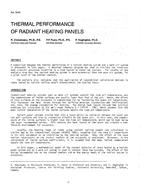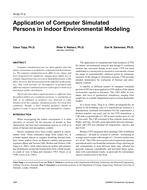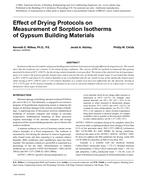Heat and moisture production rates (HP, MP) of modern 68- to 75-week-old Hy-Line W-36 laying hens during molting were measured using large-scale indirect calorimeters that mimic commercial production settings. The measurements were performed continuously during acclimation, fasting, restricted feeding, and post-molt. Total HP (THP) was partitioned into latent and sensible HP (LHP, SHP) that incorporated influence of fecal moisture evaporation. THP during fasting (averaging 4.8 W/kg) and restricted feeding (averaging 6.0 W/kg) averaged 29% and 13% lower than that during post-molt (averaging 6.8 W/kg). Correspondingly, LHP averaged 1.9 W/kg and 1.8 W/kg and was 31% and 34%, respectively, lower than that (averaging 2.7 W/kg) during post-molt. Likewise, SHP averaged 2.9 W/kg during fasting and was 28% lower than during post-molt (averaging 4.1 W/kg). The average SHP under restricted feeding and post-molt was similar (4.2 vs. 4.1 W/kg, respectively). Respiratory quotient (RQ) averaged 0.71, 0.76, and 0.92 during fasting, restricted feeding, and post-molt, respectively. Heat production rates during the light period were significantly higher (P < 0.05) than those during the dark period. Daily mean and diurnal LHP as percentages of THP were similar during fasting and post-molt but they were 10% lower during restricted feeding. The results of this study provide a new thermal load database for design of housing ventilation systems for laying hens undergoing molting phase.
Units: SI
Citation: ASHRAE Transactions, vol. 110, pt. 2
Product Details
- Published:
- 2004
- Number of Pages:
- 12
- File Size:
- 1 file , 2.2 MB
- Product Code(s):
- D-23218


